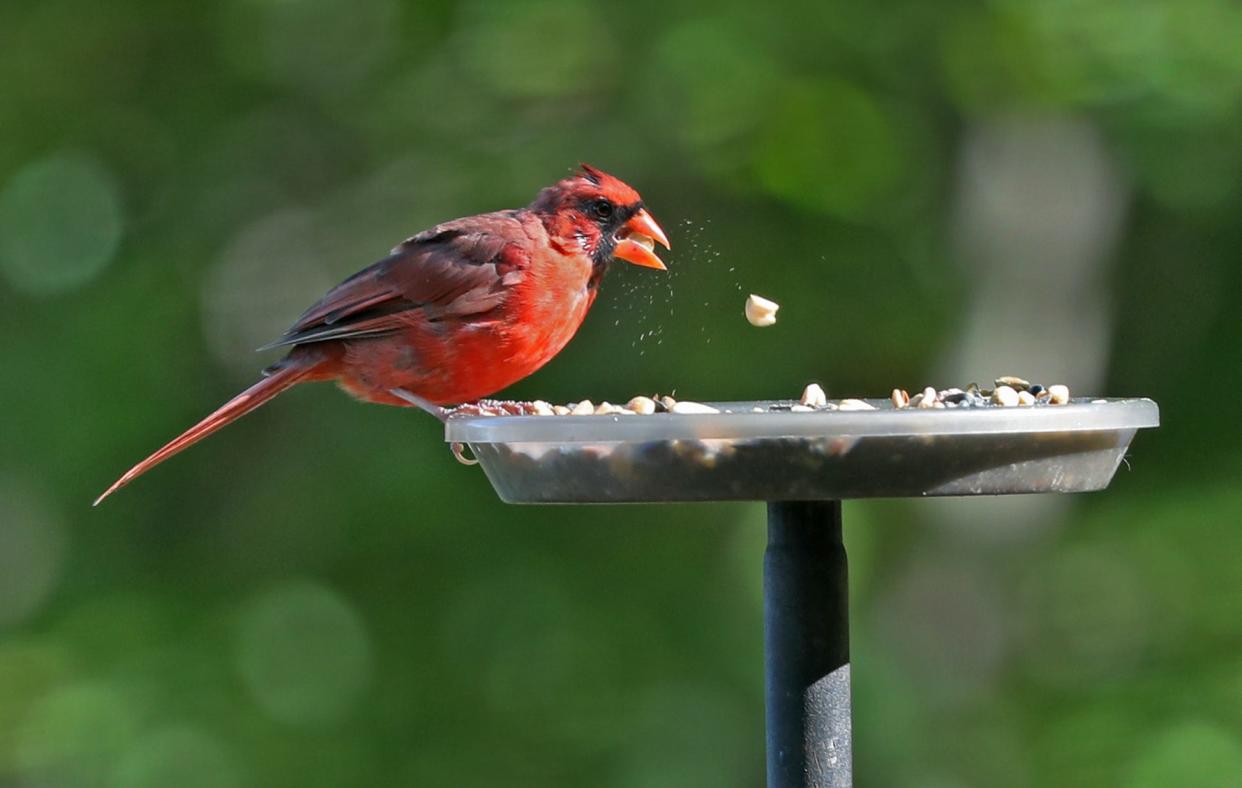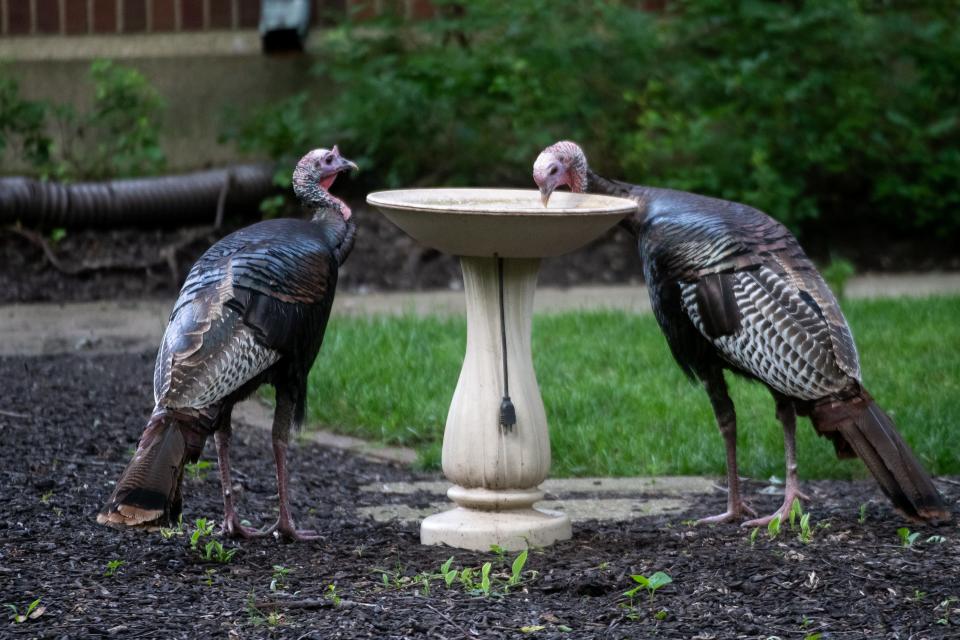Sorry, birds: Illinoisans urged to take down backyard feeders amid avian flu outbreak

The Illinois Department of Natural Resources is urging residents to remove and/or disinfect seed and grain bird feeders and also bird baths to prevent the spread of avian flu. The recommendation extends through May 31.
IDNR said while the EA H5N1 strain of highly pathogenic avian influenza has not been detected in songbirds, it is affecting some wild and domestic bird species. It said wild birds will have ample food sources while feeders are removed.
Two exceptions to the IDNR recommendation are hummingbird and oriole feeders, which provide nectar, fruit or jelly, rather than seed or grain.
What you should do
The IDNR urges residents to:
Clean and rinse bird feeders and baths with a diluted bleach solution (nine parts water to one part bleach) and remove them, or clean weekly if they can’t be moved.
Remove any birdseed at the base of feeders to discourage large gatherings of birds or other wildlife.
Avoid feeding wild birds in close proximity to domestic flocks.
If five or more dead wild birds are observed in one location, an IDNR district wildlife biologist should be contacted at wildlifeillinois.org/sidebar/contact-an-idnr-district-wildlife-biologist/. United States Department of Agriculture Wildlife Services also may be contacted, at 866-487-3297. The IDNR also requests any sightings of dead or sick bald eagles to be reported to the agency.
When disposing of dead wild birds, rubber gloves and a mask should be worn, and the carcass should be double-bagged in sealed plastic bags. The bags can be buried away from scavengers or placed in the garbage if approved by a local waste service provider. Anyone handling dead birds should thoroughly wash their hands, clothes and any tools used with soap and water following disposal.
What's tasty, free and scarce?: Morel mushrooms are starting to pop in a forest near you
Which birds are at risk?

IDNR first announced HPAI was found in wild Canada geese in Illinois on March 10. Wild bird deaths from avian flu have been confirmed in Fulton, Sangamon, Champaign and Will counties. Affected wild birds include waterfowl and waterbird species and some raptors, including bald eagles. Detections in domestic poultry flocks have also occurred.
What about turkey hunters?
Wild turkeys are less likely to contract HPAI given their behavior and habitats, but hunters should thoroughly cook the meat to an internal temperature of 165 degrees and implement other guidance found at aphis.usda.gov/publications/animal_health/2015/fsc_hpai_hunters.pdf.
This article originally appeared on Journal Star: Illinois residents should remove bird feeders amid avian flu outbreak

